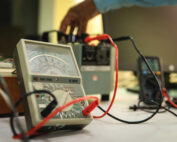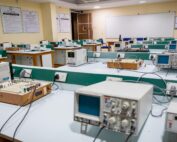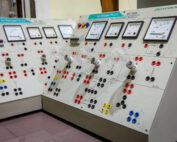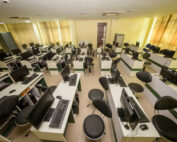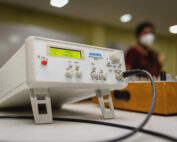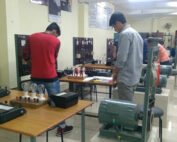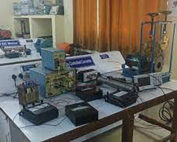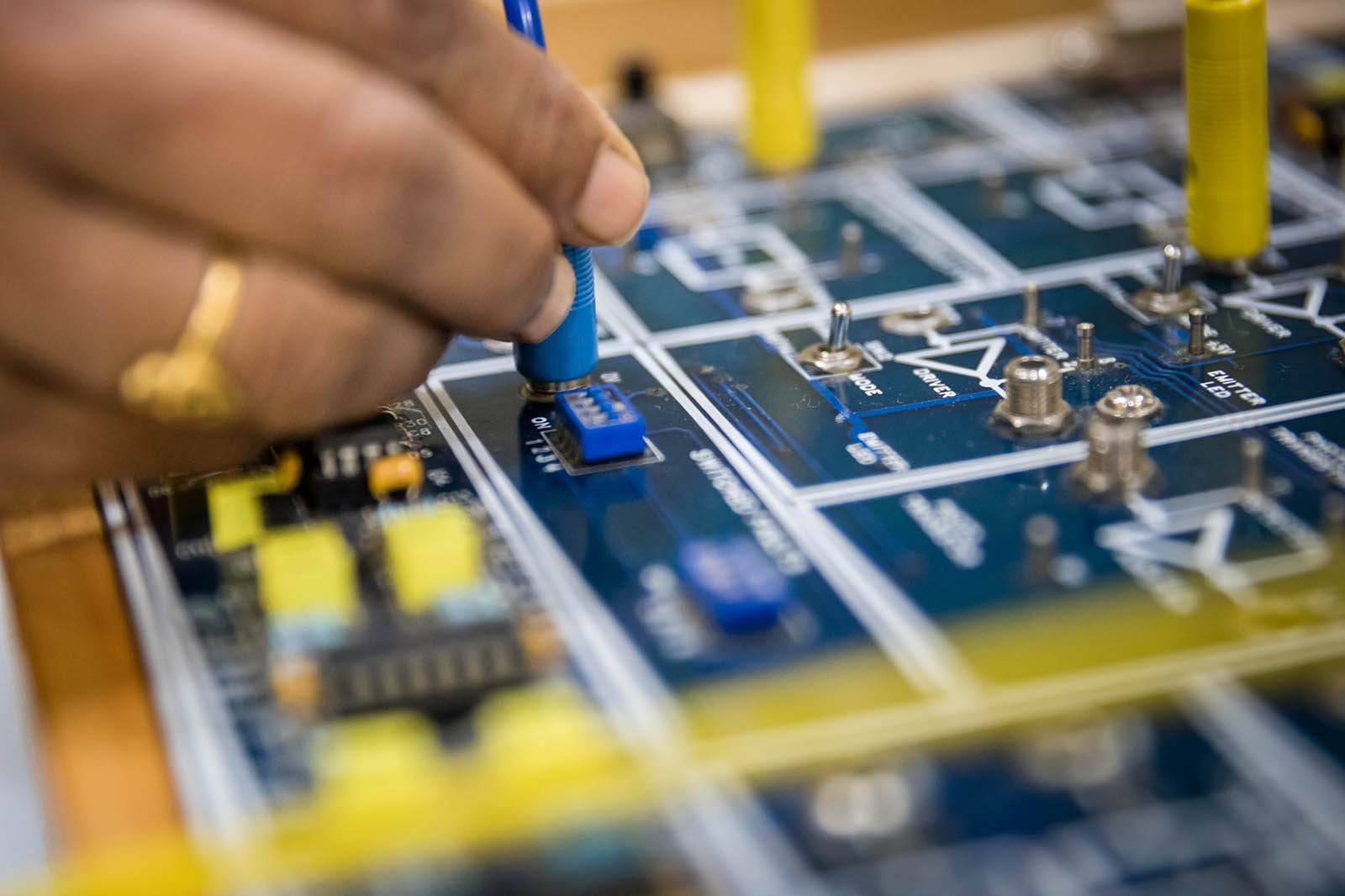B. Tech in Electronics and Electrical Engineering
KIIT School of Electronics Engineering offers “B.Tech. in Electronics and Electrical Engineering ” as its prime graduate program, which impart world class education through qualified and experienced faculties with doctorate degree from IISC, IITs, NITs, Foreign Universities and other reputed institutes. Faculty members are highly expertise in the field of power electronics, control system, electrical machine, power system, Soft Computing, Machine Learning, IoT, embedded systems, signal processing etc. This branch of Engineering conceptualizes the fundamentals for careers in multiple companies like Amazon, Delloite, Tech Mahindra, Mindtree, Infosys, Cognizant, TCS, HCL, Google, Wipro, IBM, Microsoft and many more. It also caters to Research potential in recent areas like electric vehicle, renewable energy application, machine learning, artificial intelligence, IOT, robotics, Bioinformatics, Computational Intelligence. Laboratories catering to academic requirements of electronics and allied branches at undergraduate level i.e. power electronics and drive lab, machine lab, control system lab, analog and digital electronics lab, communication engineering lab, microprocessor and micro-controller lab, and signal processing lab, measurements and instrumentation lab, process control labs. Additionally, quick and appropriate technical support for teaching and live projects are available. National Instruments’ Center of Excellence established in School of Electronics facilitates student research. Design and Thinking Lab available in School of Electronics to facilitate live projects in the areas of IoT, Machine Learning and Augmented Reality. E-cell, a student society in School of Electronics to promote technological activities among students outside their regular curriculum. B.Tech. Electronics and Electrical Engineering students of KIIT enjoy multiple job offers and high percentage of corporate and academic placements through the campus interviews with the support of KIIT Training and Placement cell and consistent guidance of expert faculties.
- Candidates who have completed or are appearing 10+2 examination or equivalent are only eligible to apply for the B.Tech(4 Years) course of the University.
- They should have studied in regular full-time formal education during their schooling/college.
- Pass in 10 +2 or its equivalent with at least 60% marks in Physics, Chemistry, and Mathematics taken together.
Program Educational Objectives (PEO)
The B. Tech Program (Electronics & Electrical Engineering) graduates will:
- Lead a successful career in industries or undertake entrepreneurial endeavors and provide solutions
in the areas of electronic system design for power system, power electronic drives and allied areas
of Electronics and Electrical engineering or pursue advanced studies. - Utilize their knowledge, skills and resources to design, invent and find creative and innovative
solutions to engineering problems in a multidisciplinary work environment following appropriate
ethical practices. - Develop attitude in lifelong learning, apply and adapt new ideas as the technology evolves.
a) Engineering knowledge: Ability to apply the knowledge of mathematics, science, engineering
fundamentals, and an engineering specialization to the solution of complex engineeringproblems.
b) Problem analysis: Ability to identify, formulate, review research literature, and analyze complex
engineering problems reaching substantiated conclusions using first principles of mathematics,
naturalsciences, and engineering sciences.
c) Design/Development of solutions: Ability to design solutions for complex engineering
problems and design system components or processes that meet the specified needs with
appropriate consideration for the public health and safety, and the cultural, societal, and
environmental considerations.
d) Conduct investigations on complex problems: Ability to use research-based knowledge and
research methods including design of experiments, analysis and interpretation of data, and synthesis
ofthe information to provide valid conclusions.
e) Modern tool usage: Ability to create, select, and apply appropriate techniques, resources, and
modern engineering and IT tools including prediction and modeling to complex engineering
activities with an understanding ofthe limitations.
f) The engineer and society: Ability to apply reasoning informed by the contextual knowledge to
assess societal, health, safety, legal and cultural issues and the consequent responsibilities relevant
to the professional engineering practice.
g) Environment and sustainability: Ability to understand the impact of the professional
engineering solutions in societal and environmental contexts, and demonstrate the knowledgeof, and
need forsustainable development.
h) Ethics: Ability to apply ethical principles and commit to professional ethics and responsibilities and
norms ofthe engineering practice.
i) Individual and team: Ability to function effectively as an individual, and as a member or leader in
diverse teams, and inmultidisciplinary settings.
62
j) Communication: Ability to communicate effectively on complex engineering activities with the
engineering community and with society at large, such as, being able to comprehend and write
effective reports and design documentation, make effective presentations, and give and receive clear
instructions.
k) Project management and finance: Ability to demonstrate knowledge and understanding of the
engineering and management principles and apply these to one’s own work, as a member and leader
in a team, tomanage projects and inmultidisciplinary environments.
l) Life-long learning: Ability to recognize the need for, and have the preparation and ability to
engage in independent and life-long learning in the broadest context oftechnological change.
The Program Specific Outcomes are:
a) Ability to design, and implement electrical and electronic circuits, electrical drives and power
system control for industrial applications.
b) Ability to conduct research in automation & control, embedded system and related technologies.
c) Ability to design and develop complex products using suitable tools for societal and engineering
needs with skills to communicate effectively in groups.


